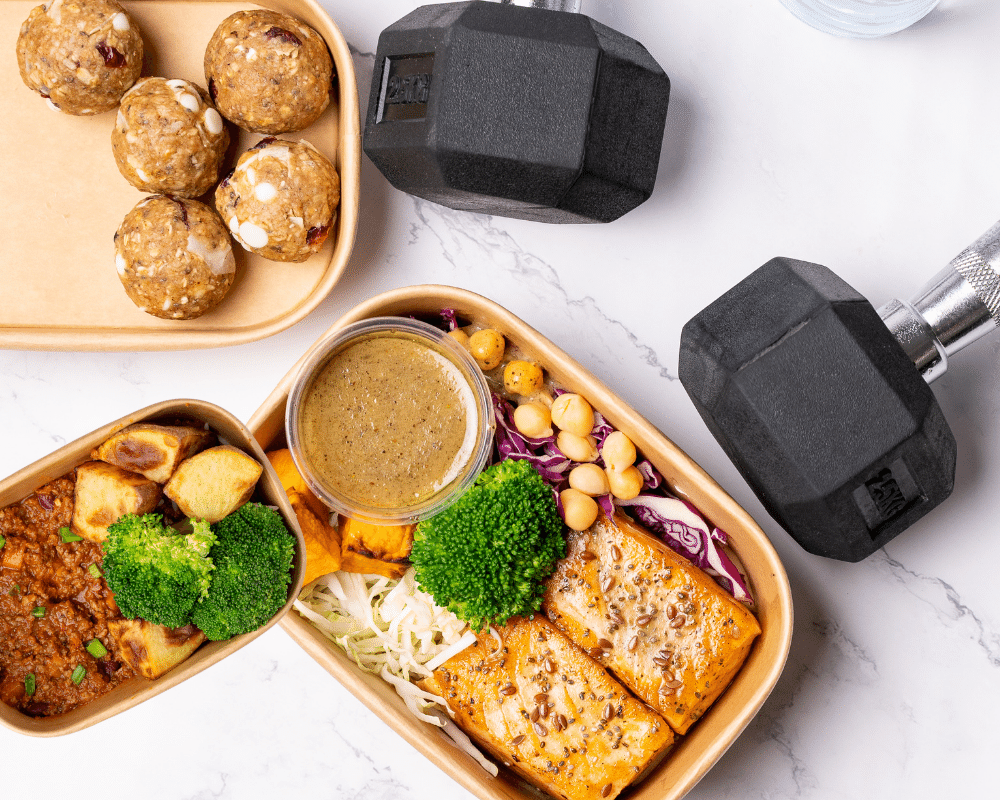Women’s Health: Eat Your Way to Balance Hormones
Hormones have a huge impact on how you feel every day, and the good news is that small changes in your diet and lifestyle can make a big difference.

Author: Helen Conway
Nutritionist
Hormones might not be something you think about every day, but they’re working around the clock to keep your body running smoothly. These chemical messengers control everything in your body from your mood and energy levels to metabolism and reproductive health. For women, two key hormones, namely oestrogen and progesterone, play a major role in keeping things in balance.
When these hormones are at healthy levels, you’ll likely feel great—your menstrual cycle is regular, your energy levels are stable, and your body functions as it should. But when they’re out of balance, which can happen due to stress, poor diet, lack of sleep, or even natural life stages like menopause, you might experience symptoms like mood swings, fatigue, irregular cycles, or other health issues. The good news is that the food you eat can have a big impact on keeping your hormones happy!
The Best Foods for Hormonal Balance
Your body needs certain nutrients to produce and regulate hormones. While this list isn’t exhaustive, here are some of the best foods to include in your diet to keep things running smoothly:
Soy & Soy-Based Products
Soy products like tofu, tempeh, and soy milk contain isoflavones, a type of natural plant compound that acts a bit like oestrogen in the body. Research suggests that these compounds which are called ‘phytoestrogens’ may help support hormone balance, especially during menopause (Smart & Sanfins, 2024).
Flaxseeds
Flaxseeds are rich in lignans, another type of phytoestrogen that may help keep oestrogen levels in check. Sprinkling flaxseeds on foods like yogurt, oats or salads is an easy way to include them in your diet (Cetisli et al., 2015).
Cruciferous Vegetables
Vegetables like broccoli, kale, Brussels sprouts, and cauliflower contain compounds called glucosinolates that support your liver, which plays a key role in processing and eliminating excess hormones. Eating more of these veggies may help regulate oestrogen levels (Esteve, 2020).
Healthy Fats
Your body needs healthy fats to produce hormones. Foods like avocados, nuts, seeds, and olive oil provide the essential fatty acids needed for hormone production. Omega-3-rich foods like oily fish can also help reduce inflammation, which supports overall health (Calder, 2010).
High-Fiber Foods
Whole grains, fruits, vegetables and legumes are great sources of fibre, which helps support digestion and promote a healthy gut environment, which has been linked to hormone regulation (He et al., 2021).
Dark Chocolate
If you’re looking for an enjoyable way to support your hormones, dark chocolate might be a great addition to your diet. Cocoa is packed with flavonoids, plant compounds known for their antioxidant properties. Some flavonoids interact with the body in ways similar to oestrogen, which may help with hormonal balance (Smart & Sanfins, 2024). Research suggests that these compounds could play a role in boosting mood, improving brain function, and even promoting satiety – helping you feel fuller for longer (Collins-Burow et al., 2000). Choosing high-quality dark chocolate (with at least 70% cocoa) can be a tasty and beneficial way to support overall health while satisfying your sweet tooth in a mindful way.

Simple Lifestyle Tips for Hormonal Health
Besides eating the right foods, a few small lifestyle changes can also help keep your hormones balanced:
- Get Enough Sleep – Your body does a lot of hormone regulation while you sleep. Aim for at least 7-9 hours per night to keep your hormones in sync.
- Stay Active – Exercise helps regulate insulin and other hormones, improving overall balance. A mix of strength training, cardio, and stretching is best.
- Limit Processed Foods & Sugar – Too much sugar and processed food can disrupt blood sugar levels and contribute to hormone imbalances. Stick to whole, unprocessed foods whenever possible.
- Manage Stress – Chronic stress leads to high cortisol levels (Knezevic et al., 2023), which can adversely affect other aspects of your health. Taking time to relax, practice deep breathing, or get outside in nature can help lower stress levels.
The Takeaway
Hormones have a huge impact on how you feel every day, and the good news is that small changes in your diet and lifestyle can make a big difference. By eating hormone-friendly foods, prioritizing sleep, managing stress, and staying active, you can naturally support your body’s balance and feel your best.
If you suspect a hormonal imbalance is affecting your health, you should strongly consider speaking with a healthcare professional for more personalized advice. But in the meantime, adding more of these hormone-supporting foods to your meals is a great place to start!
References
Calder, P.C. (2010) ‘Omega-3 fatty acids and inflammatory processes’, Nutrients, 2(3), pp. 355–374. doi:10.3390/nu2030355.
Cetisli, N.E., Saruhan, A. and Kivcak, B. (2015) ‘The effects of flaxseed on menopausal symptoms and quality of life’, Holistic Nursing Practice, 29(3), pp. 151–157. doi:10.1097/hnp.0000000000000085.
Collins-Burow, B.M. et al. (2000) ‘Estrogenic and antiestrogenic activities of flavonoidphytochemicals through estrogen receptorbinding-dependent and -independent mechanisms’, Nutrition and Cancer, 38(2), pp. 229–244. doi:10.1207/s15327914nc382_13.
Esteve, M. (2020) ‘Mechanisms underlying biological effects of cruciferous glucosinolate-derived isothiocyanates/indoles: A focus on metabolic syndrome’, Frontiers in Nutrition, 7. doi:10.3389/fnut.2020.00111.
He, S. et al. (2021) ‘The gut microbiome and sex hormone-related diseases’, Frontiers in Microbiology, 12. doi:10.3389/fmicb.2021.711137.
Knezevic, E. et al. (2023) ‘The role of cortisol in chronic stress, neurodegenerative diseases, and psychological disorders’, Cells, 12(23), p. 2726. doi:10.3390/cells12232726.
Patisaul, H.B. and Jefferson, W. (2010) ‘The Pros and cons of phytoestrogens’, Frontiers in Neuroendocrinology, 31(4), pp. 400–419. doi:10.1016/j.yfrne.2010.03.003.
Smart, W. and Sanfins, A. (2024) 7 natural foods and remedies to increase estrogen, 7 Natural Foods and Remedies To Increase Estrogen. Available at: https://zoe.com/learn/can-you-boost-estrogen-naturally (Accessed: 28 February 2025).





